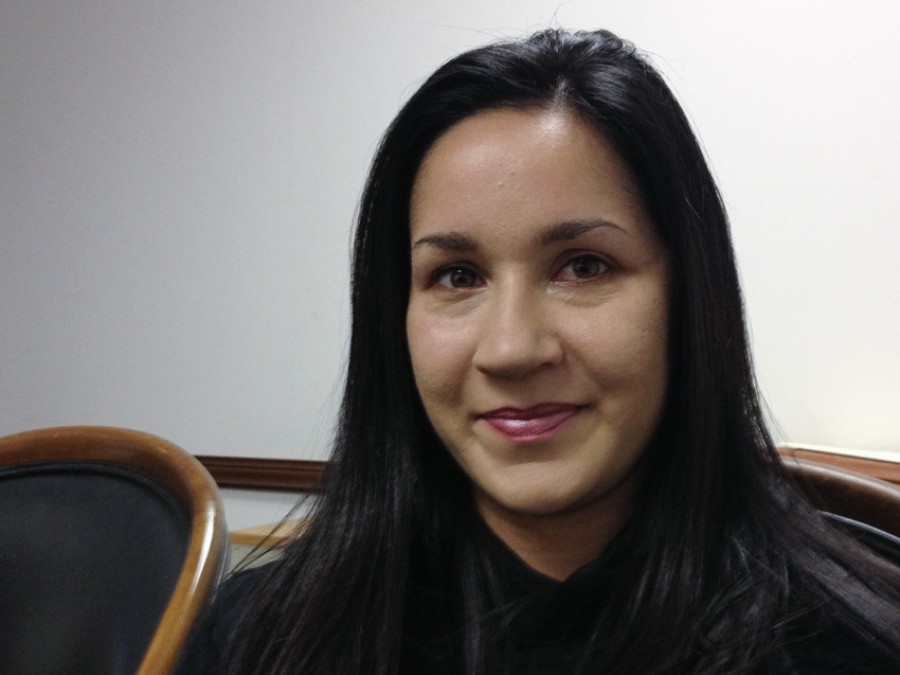Cabbie’s lawsuit against Chicago moves forward
By Odette Yousef

Cabbie’s lawsuit against Chicago moves forward
By Odette Yousef
The complaint was filed by Melissa Callahan, who started driving a cab about four years ago to support herself and her two children after a divorce. American-born and female, Callahan is unusual in Chicago’s pool of mostly male, mostly immigrant taxi drivers. But she said these differences may partly account for why she, of Chicago’s nearly 13,000 cab drivers, is the one who filed the complaint while many share the same grievances.
“I think that there is fear of retaliation by a lot of our immigrant drivers. I think they are nervous about that,” said Callahan, who originally intended to represent herself.
Callahan said researching the legal basis for her claim was challenging, and she expects it would have been more so for foreign-born drivers, who might be less familiar with the U.S. judicial system. Later, the case was picked up by attorney Thomas Geoghehan’s firm Despres, Schwartz, & Geoghegan, Ltd., and filed in the U.S. District Court of Northern Illinois.
The gist of Callahan’s complaint is that the city recently increased the maximum lease rate that cab companies can charge drivers to lease their vehicles, but it has kept meter rates the same.
“Think of it as a pincer and drivers being squeezed,” said Geoghegan. “On the one hand they have very high lease rates that they have to pay, on the other hand the meter rates are kept low for the benefit of the public.”
The suit seeks to establish that the City of Chicago is wholly, jointly, or in part Callahan’s employer because of the degree of regulation that it exercises over her and other drivers.
Sean Morales-Doyle, an attorney handling the case with Geoghegan, noted that in some other cities, drivers have sued cab companies over wages. But he said in Chicago, the city government is the appropriate target for this lawsuit.
“It’s the city that tells the cab drivers they have to accept credit cards, that they have to charge this fare, what their dress code is, how courteous they have to be towards people,” Morales-Doyle, said. “The way things work in Chicago, the detailed level of regulation and control that cab drivers face is not control and regulation by the cab companies, it’s control and regulation by the city.”
Morales-Doyle added that, even if Callahan is considered an independent contractor, there are standards under federal law that determine whether the economic reality of a contractor’s arrangement with a contracting entity is such that they effectively have an employee-employer relationship.
The city’s law department declined to comment for this story, as the lawsuit is pending. But in its court filings, it disputes Callahan’s assertion of an employee-employer relationship between her and the city. It also takes issue with Callahan’s characterization of the city’s meter rates as “low.”
One section reads: “How much a driver earns depends not on the City’s regulations but on independent factors such as the quality, type, and lease price of the cab, tips, number of customers, and efficiency of driving.”
The city also asserts that while it does set lease caps that cab companies may charge drivers, it does not mandate that those companies actually charge the maximum lease rate. In practice, though, taxi companies often do charge the legal maximum.
The outcome of this case could affect more than just cab drivers. If Callahan wins, the city could be on the hook for a substantial back payment of wages to cab drivers, said Geoghegan.
Callahan hopes that by establishing the city as her employer, City Hall will have to ensure that she earned, on average, the federal and state hourly minimum wage for time she spent as a full-time driver. And if Callahan wins class-action status, Geoghegan said that decision would carry to nearly 12,000 other full-time cab drivers as well.
Geoghegan said such a decision could also affect the public in another way: The city might have to consider increasing meter rates. Fares were last raised in 2005, and the city has been reluctant to raise them ever since, even though many in the industry think there may be room for an upward adjustment.
“Generally the rates in Chicago — relative to a lot of other cities around the country and around the world — are fairly low per mile,” said Michael Levine, majority owner of Yellow Cab.
Levine said raising the meter rates would benefit everybody in the industry, including cab owners, and that cab riders would get used to it.
“Even if you look at it from the standpoint of ‘Well, sometimes you raise the meter rates too much, and passengers get pissed off and stop taking cabs,’ usually that’s a short-lived effect,” he said.